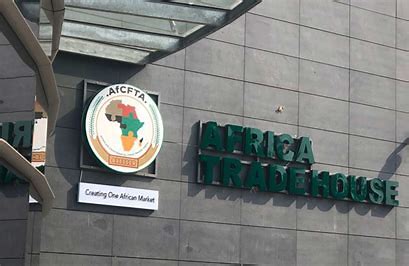The African Continental Free Trade Area (AfCFTA) presents a significant opportunity for trade growth and economic development in Africa, says the World Bank, amid recent trade tensions.
It has, therefore, urged African governments to provide an enabling environment to expand and make their markets available to each other for enhanced intra-continental trade.
In the 31st edition of Africa’s Pulse report, the Bank noted that Sub-Saharan Africa faced heightened uncertainty due to changes in trade dynamics, regional conflict, and climate change affecting people and crops.
It also indicated that such development would have both direct and indirect impacts of policy changes materialising and evolving.
“African economies have the option to liberalise and diversify their markets, including leveraging the African Continental Free Trade Area (AfCFTA) to boost regional trade, to expand economic activity and provide jobs for young people,” the Bank noted.
The report, focusing on “Improving governance and delivering for people in Africa,” observed that economic growth in the region was showing some resilience despite uncertainty in the global economy and restricted fiscal space.
It projected a 3.5 per cent growth for the region for 2025, with a further increase to 4.3 per cent in 2026 and 2027, citing increased private consumption and investments as inflation cools down and currencies stabilise.
The projections by the World Bank were not too far from those by the International Monetary Fund (IMF), which expected the region to grow by 3.8 per cent in 2025 and improve further to 4.2 per cent in 2026.
“However, growth is still not strong enough to significantly reduce poverty and meet people’s aspirations,” the Bank flagged as a concern, urging urgent reforms to match growth opportunities with ‘good jobs’ for its young population.
“There is a growing gap between people’s aspirations for good jobs and functioning public services and often sub-optimal markets and institutions,” said Andrew Dabalen, World Bank Chief Economist for the Africa Region.
“Urgent reforms, backed by more competition, transparency, and accountability, will be key to attract private investments, increase public revenue, and create more economic opportunity for millions of Africans entering the workforce each year,” he stated.
The report noted that the region was faced with high debt and declining global aid, with a decline in real income per capita in 2025 expected to be below the two per cent in peak in 2015.
It urged countries to seize the opportunity to increase efficiency in government spending to provide better access to essential services like health, education, water,r and electricity.
Additionally, the region was to improve public services, provide a fair tax system, stronger accountability, and clear market rules to help businesses compete, grow, and create jobs, helping strengthen the relationship between governments and taxpayers, the Bank said.
GNA.









